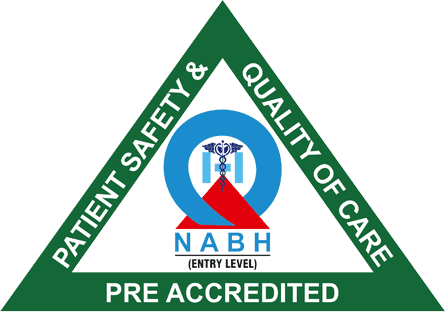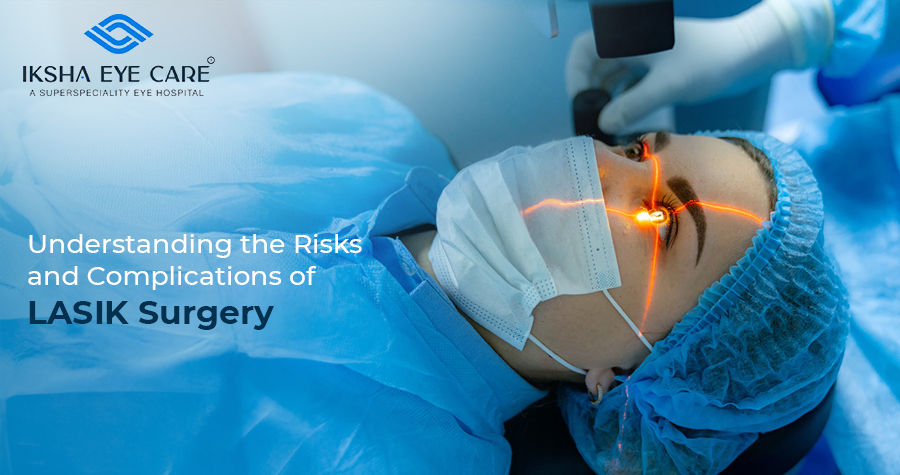Getting LASIK surgery to improve your vision is a big decision. While the idea of not needing glasses or contact lenses is exciting, it’s important to understand the possible risks and complications. If you’re thinking about LASIK in Mumbai, choosing the Best LASIK surgeon in Mumbai is key to having a safe and successful procedure. This guide will help you learn about LASIK so you can make the best choice for your eyes.
Introduction to LASIK Surgery
Laser-Assisted In Situ Keratomileusis, commonly known as LASIK, is a popular surgical procedure designed to correct common vision problems such as nearsightedness, farsightedness, and astigmatism. By reshaping the cornea—the eye’s clear front surface—laser treatment for eyesight improves the way light rays are focused onto the retina, enhancing visual clarity.
How Does LASIK Work?
The procedure involves creating a thin flap in the cornea, either with a microkeratome blade or a femtosecond laser. The flap is carefully lifted, and a special excimer laser is used to reshape the corneal tissue underneath. Once the cornea is reshaped appropriately, the flap is repositioned, acting as a natural bandage during the healing process.
Immediate Post-Surgery Expectations
Post-LASIK, patients might experience:
- Dry Eyes: A common LASIK eye surgery side effect where the eyes may feel gritty or uncomfortable. This typically resolves over time but can be managed with lubricating eye drops.
- Visual Disturbances: Some people may notice halos, glare, or double vision, especially in dim lighting. These issues usually improve as the eyes heal.
- Discomfort: Mild irritation or a burning sensation is common immediately after the procedure but generally subsides within a few days.
Potential Risks and Complications
While LASIK boasts a high success rate, it’s crucial to be aware of potential complications:
- Permanent Side Effects of LASIK Eye Surgery: In rare instances, LASIK eye surgery side effects may include persistent dry eyes or long-term vision disturbances. These issues can impact daily activities and overall eye comfort.
- Overcorrection or Undercorrection: The laser might remove too much or too little corneal tissue, leading to less-than-optimal vision correction. Additional surgery might be required to achieve the desired outcome.
- Flap Complications: Issues like infection or excessive tearing can arise if the corneal flap isn’t properly formed or repositioned.
- Regression: Over time, some patients might notice their vision reverting to pre-LASIK levels, necessitating further corrective measures.
Who Should Not Have Laser Eye Surgery?
LASIK isn’t suitable for everyone. Individuals with the following conditions should exercise caution or consider alternative treatments:
- Unstable Vision: Those whose vision prescription has changed significantly in the past year.
- Severe Dry Eyes: Existing dry eye conditions can be exacerbated by LASIK.
- Autoimmune Disorders: Conditions like rheumatoid arthritis or lupus can impair healing.
- Pregnancy or Nursing: Hormonal fluctuations can affect vision stability.
- Thin or Irregular Corneas: Having a cornea that is too thin or irregular can make LASIK unsafe, as proper thickness is needed for a successful procedure.
LASIK Eye Surgery Risk Percentage
Studies indicate that serious complications from LASIK are rare. However, minor side effects are more common:
- Dry Eyes: Approximately 20% to 40% of patients experience temporary dry eyes post-surgery.
- Visual Disturbances: Up to 20% might notice halos or glare shortly after the procedure.
It’s essential to discuss individual risk factors with a qualified ophthalmologist to understand personal risk percentages better.
LASIK Eye Surgery Recovery Time
Recovery varies among individuals, but general timelines include:
- First 24-48 Hours: Most patients notice improved vision, though some blurriness may persist.
- First Week: Many can resume daily activities, but it’s advisable to avoid strenuous exercise or swimming.
- 1 to 3 Months: Vision continues to stabilize, with most side effects resolving during this period.
- 6 Months: Final vision outcomes are typically achieved.
Following post-operative care instructions is essential for a smooth and successful recovery.
Is LASIK Surgery Safe?
When performed on suitable candidates by experienced surgeons, LASIK surgery is safe and effective. Nevertheless, like any surgical procedure, it carries some risks. Thorough pre-operative evaluations and selecting a reputable surgeon can significantly mitigate these risks.
LASIK Surgery Age Limit
While there’s no strict age limit for LASIK, certain age-related considerations include:
- Under 18: Generally not recommended due to unstable vision.
- 18 to 40: Ideal candidates typically fall within this range, provided they have stable prescriptions.
- Over 40: Presbyopia (age-related farsightedness) may necessitate additional considerations. Alternative procedures or monovision LASIK might be discussed.
- Over 60: Conditions like cataracts become more prevalent, influencing the decision for LASIK.
Alternatives: Laser Treatment for Eyesight
For those unsuitable for LASIK, other laser treatment for eyesight options include:
- Photorefractive Keratectomy (PRK): Involves removing the cornea’s outer layer before reshaping. Suitable for individuals with thin corneas.
- Small Incision Lenticule Extraction (SMILE): A minimally invasive procedure ideal for certain degrees of nearsightedness.
Each alternative has its own set of benefits and considerations, which should be discussed with an eye care professional.
LASIK Eye Surgery Cost
The LASIK eye surgery cost varies based on factors like the surgeon’s experience, technology used, and geographic location. In Mumbai, prices can range from ₹25,000 to ₹80,000 per eye. It’s crucial to ensure that the cost includes pre-operative evaluations, the surgery itself, and post-operative care.
Choosing the Best LASIK Surgeon in Mumbai
Selecting a skilled and experienced surgeon is paramount. Considerations include:
- Qualifications and Experience: Ensure the surgeon is board-certified with substantial experience in performing LASIK.
- Patient Reviews: Testimonials and reviews can provide insights into patient satisfaction and outcomes.
- Technology and Facilities: Modern equipment and a sterile environment are indicative of a reputable clinic.
Conclusion
LASIK surgery offers the promise of improved vision and reduced dependence on corrective lenses. That said, being aware of the potential risks and complications is crucial. If you’re considering LASIK surgery in Mumbai, choosing the Best LASIK surgeon in Mumbai ensures safety and optimal results. By thoroughly researching and consulting with experienced professionals, individuals can make informed decisions that align with their vision goals and overall eye health.
Frequently Asked Questions (FAQs)
- Is LASIK surgery painful?
No, LASIK is generally painless. Numbing eye drops are used, and patients may only feel slight pressure during the procedure. - How long does LASIK surgery take?
The actual laser procedure lasts about 10-15 minutes for both eyes, while the entire process, including preparation, takes around 30-45 minutes. - Can LASIK completely remove the need for glasses?
In most cases, LASIK significantly reduces or eliminates the need for glasses. However, some people may still need glasses for certain tasks, especially as they age. - When is it safe to resume work after LASIK?
Recovery time varies for each person, but most can get back to work within a couple of days. It’s important to follow your doctor’s specific recommendations for a smooth healing process. - What if my vision changes after LASIK?
While LASIK results are long-lasting, vision can change due to aging or other factors. In some cases, enhancement procedures may be needed.
6. What are the risks of LASIK?
A: LASIK risks may include dry eyes, glare, halos, or temporary vision issues, though serious complications are rare.















